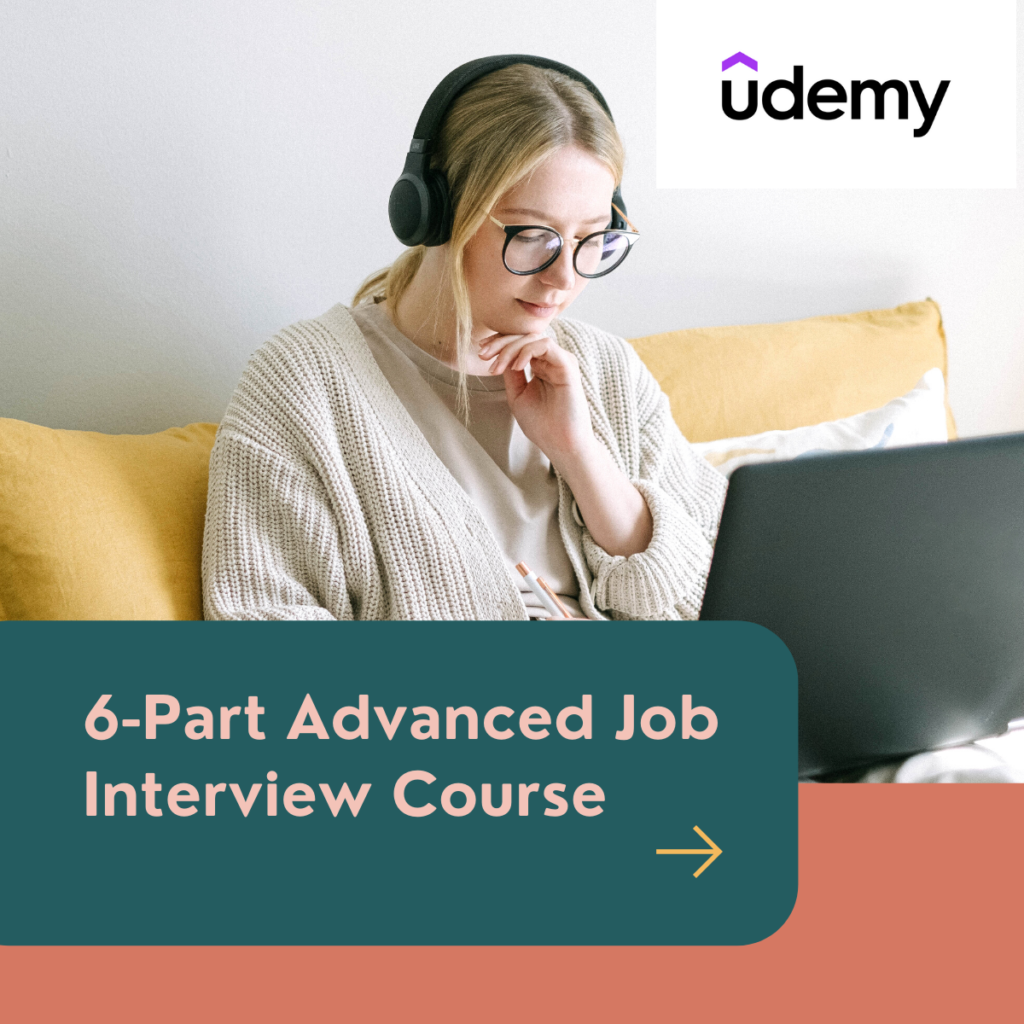The free 6-part online job interview course will help you gain the skills and knowledge to be successful in the recruitment process.
Each module is designed to build upon the last, increasing your likelihood of gaining more job offers. The course has been designed and created by Author and Interview Coach Chris Delaney.
The course will help you to pass more job interviews and make you more confident at ‘selling’ yourself
- Become skilled at communicating your competencies confidently – this creates a higher score on the interview scorecard increasing the number of job offers you can receive
- Learn how to relax before a job interview, giving you the confidence to share your knowledge and expertise during the recruitment process – be the best version of yourself in the job interview
- Gain the knowledge to sell yourself. We will share interview answer structures, rapport-building techniques and explain what the employer wants to hear during the job interview – you will learn the psychology of the interview process
The course will ignore the basic advice that can be found on a million websites; research the company, prepare for the interview, and have a good night’s sleep. Instead, the course curriculum is based on the findings from a number of job interview academic research papers and psychology findings, to help the savvy interviewee to stand out from the crowd.
The three rules for a successful job interview outcome are:
- Identify the job criteria
- Be a self-promoter
- Communicate with confidence
A published author, job interview trainer, and interview coach, Chris Delaney, will share his 20 years of experience to help you improve your job interview performance. Chris Delaney specialises in advanced job interview techniques, and as a hypnotherapist, helps clients overcome their job interview fears and anxiety.
Identify the job criteria
- Learn how to predict the job interview questions
- Learn how to structure any interview answer
- Learn how to take advantage of the structured job interview
Be a self-promoter
- Learn how language can impact the interview outcome
- Learn how the interviewer perceives you – take the interview identity test
- Learn how to sell yourself with each interview answer
Communicate with confidence
- Overcome interview anxiety quickly
- Increase communication confidence in face-to-face and virtual job interviews
- Build rapport with interviewers to increase likeability
Chris will share research on the job interview process and explain the hidden psychology in play that neither the applicant nor the interviewer is aware of, and how you can use this knowledge to your advantage.
Understand:
- How unconscious bias affects the interview scorecard
- What ‘what is beautiful is good’ bias is and how to use positive generalisations for your benefit
- Why a structured interview is better placed to predict job performance than an unstructured job interview and how to win in a structured interview recruitment process
The ideal way to use this course is to watch each video in order, one video per week. The duration between the course modules allows students to practice the techniques described within the course helping the participant to increase their job interview skill set.
Module 1 – What Creates a Successful Job Interview Outcome?
Learn about the structure of a job interview, what makes a high-scoring interview answer, and the three rules for a successful job interview.
The module will also teach you how to speak more confidently, especially during a job interview presentation.
Module 2 – Unconcious Bias
Learn how unconscious bias affects all job interviews, the common types of biases within recruitment, and the power of a positive bias.
Module 3 – Understanding the Interviewer’s Behavior
Learn how the interviewer’s behavior affects the applicant’s interview, how an alfa interviewer needs winning over, and the power of a self-fulfilling prophecy
Module 4 – What Is Your Interview Identity?
Learn how an interview panel views the applicant (their interview identity) based on your perceived knowledge and confidence during the job interview.
Module 5 – Improve Your Interview Identity
Learn how to improve your interview identity, how to overcome anxiety when speaking in public, and what you can do to improve your level of job interview confidence
Module 6 – Interview Questions and Answers
Learn what type of interview questions you will be asked during the job interview, how to predict the job interview questions, and how to sell yourself throughout the job interview.
Also, learn what makes a high-scoring job interview answer that will result in more job offers.
The ‘what is your interview identity’ book is available from Amazon:




















